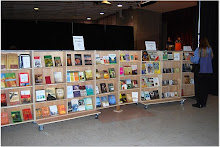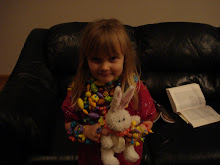“Let us hold fast the confession of our hope without wavering, for he who promised is faithful.”
-Hebrews 10:23
The Lord has promised good to me,
His word my hope secures;
He will my shield and portion be,
As long as life endures.
- John Newton, Amazing Grace, verse 4
Q. What are the benefits which in this life do accompany or flow from justification, adoption, and sanctification?
A. The benefits which in this life do accompany or flow from justification, adoption, and sanctification, are, assurance of God's love, peace of conscience, joy in the Holy Ghost, increase of grace, and perseverance therein to the end.
- Westminster Shorter Catechism, Question and Answer 36
“We shall bring our Lord much glory if we get from Him much grace. If we have much faith, so that I can take God at His Word…I shall greatly honor my Lord and King.”
- Charles Spurgeon, quoted in John Piper’s Future Grace, p. 9
“In other words, on the basis of the work of Christ, the power of the redeemed future has been released to act in the present in the person of the Holy Spirit.”
- N. Q. Hamilton, The Holy Spirit and Eschatology in Paul, quoted in Anthony Hoekema’s, The Bible and the Future, p.58
-Hebrews 10:23
The Lord has promised good to me,
His word my hope secures;
He will my shield and portion be,
As long as life endures.
- John Newton, Amazing Grace, verse 4
Q. What are the benefits which in this life do accompany or flow from justification, adoption, and sanctification?
A. The benefits which in this life do accompany or flow from justification, adoption, and sanctification, are, assurance of God's love, peace of conscience, joy in the Holy Ghost, increase of grace, and perseverance therein to the end.
- Westminster Shorter Catechism, Question and Answer 36
“We shall bring our Lord much glory if we get from Him much grace. If we have much faith, so that I can take God at His Word…I shall greatly honor my Lord and King.”
- Charles Spurgeon, quoted in John Piper’s Future Grace, p. 9
“In other words, on the basis of the work of Christ, the power of the redeemed future has been released to act in the present in the person of the Holy Spirit.”
- N. Q. Hamilton, The Holy Spirit and Eschatology in Paul, quoted in Anthony Hoekema’s, The Bible and the Future, p.58
Dear Christ Our Redeemer Family and Friends,
To say that 2008 was a tumultuous year is a colossal understatement. What can we expect from 2009? Will this next year be more of the same? Will it be better? Or will it be worse? One thing we can be assured of is the faithfulness of our covenant-keeping God no matter what this next year holds. For some of us this new year will bring extraordinary trial and for others extraordinary blessing, and for all of us there will be an opportunity to prove God’s faithfulness again and again. The Cross stands as the declaration of God’s intention and commitment to show us His favor. In the brutal death of His Son and the Son’s subsequent resurrection everything that could be used for our harm will only redound to our good. This is not some perverse prosperity theology. Because of the sin-bearing satisfaction of Jesus Christ, God has promised good to us. No matter what comes in 2009 we mustn’t waver, because He who promised is faithful. Listen to the God-exalting, Son-crucifying, grace-magnifying love the Father has for us,
“He who did not spare his own Son but gave him up for us all, how will he not also with him graciously give us all things? Who shall bring any charge against God's elect? It is God who justifies. Who is to condemn? Christ Jesus is the one who died - more than that, who was raised - who is at the right hand of God, who indeed is interceding for us. Who shall separate us from the love of Christ? Shall tribulation, or distress, or persecution, or famine, or nakedness, or danger, or sword? As it is written, "For your sake we are being killed all the day long; we are regarded as sheep to be slaughtered." No, in all these things we are more than conquerors through him who loved us.” (Romans 8:32-37)
Expecting an abundance of God-exalting grace in 2009,
Dan




























